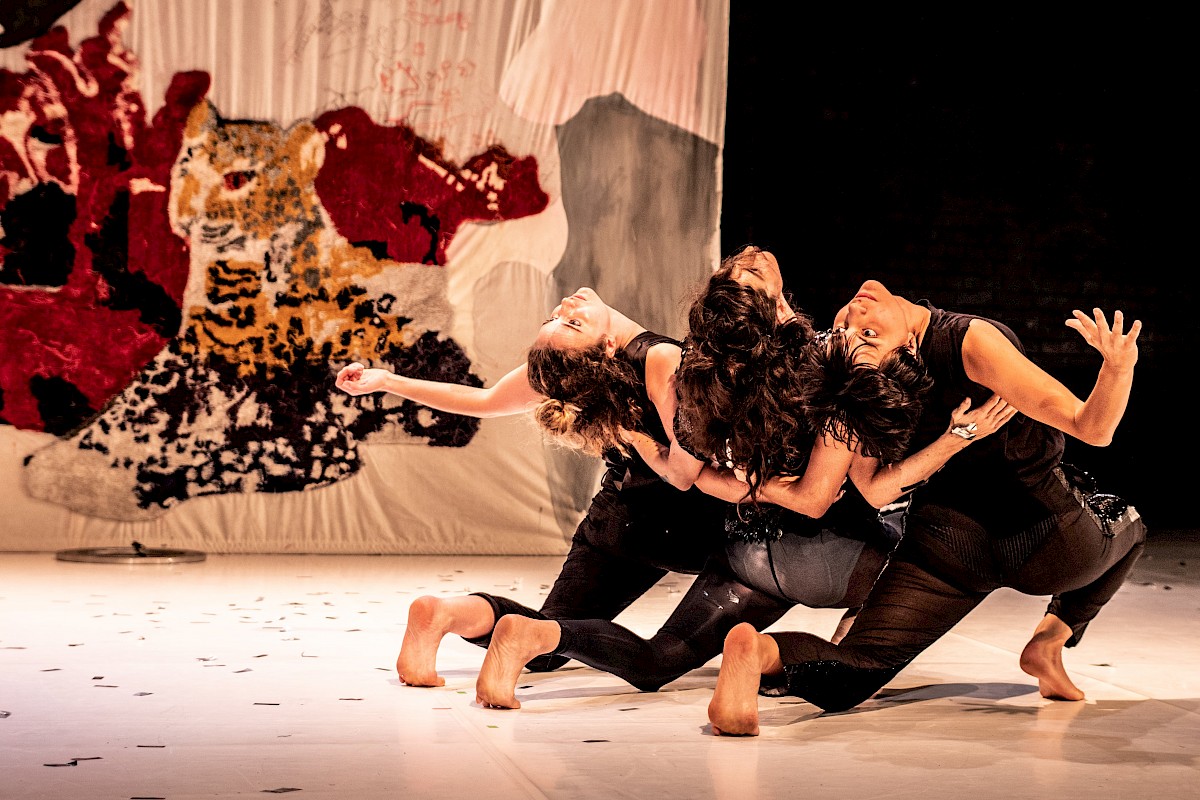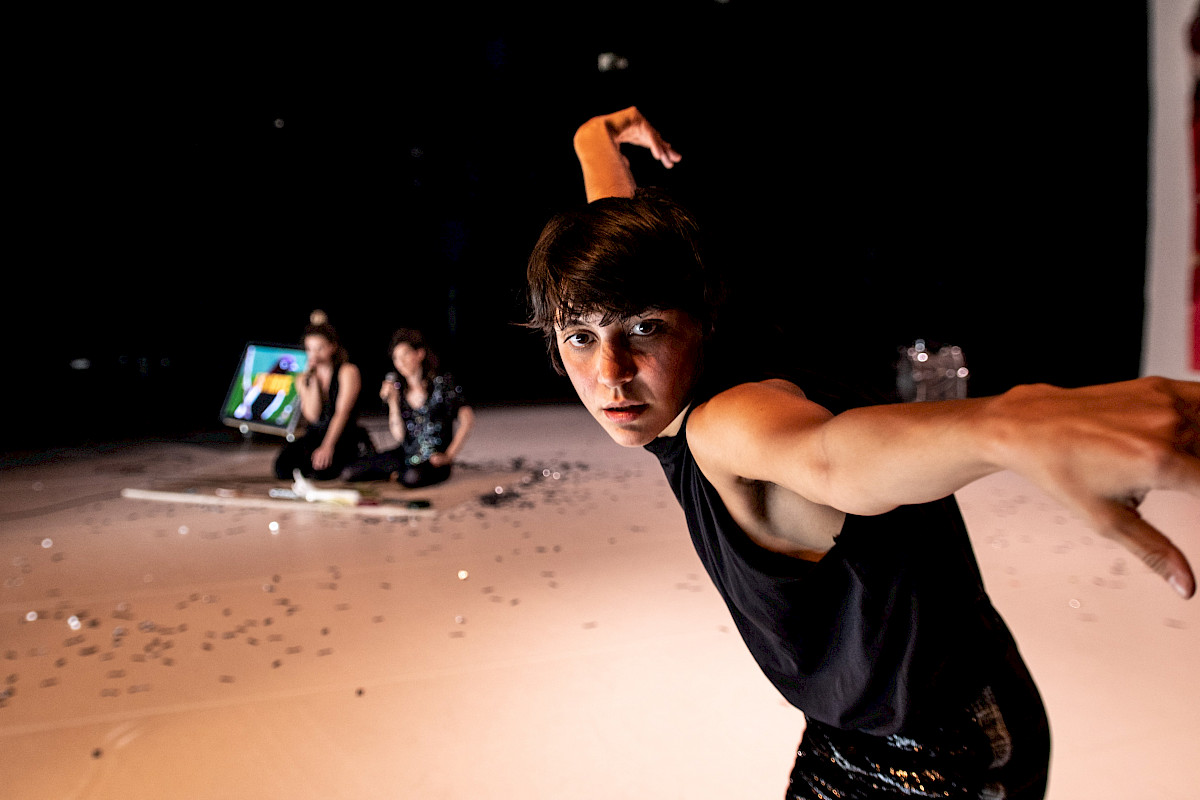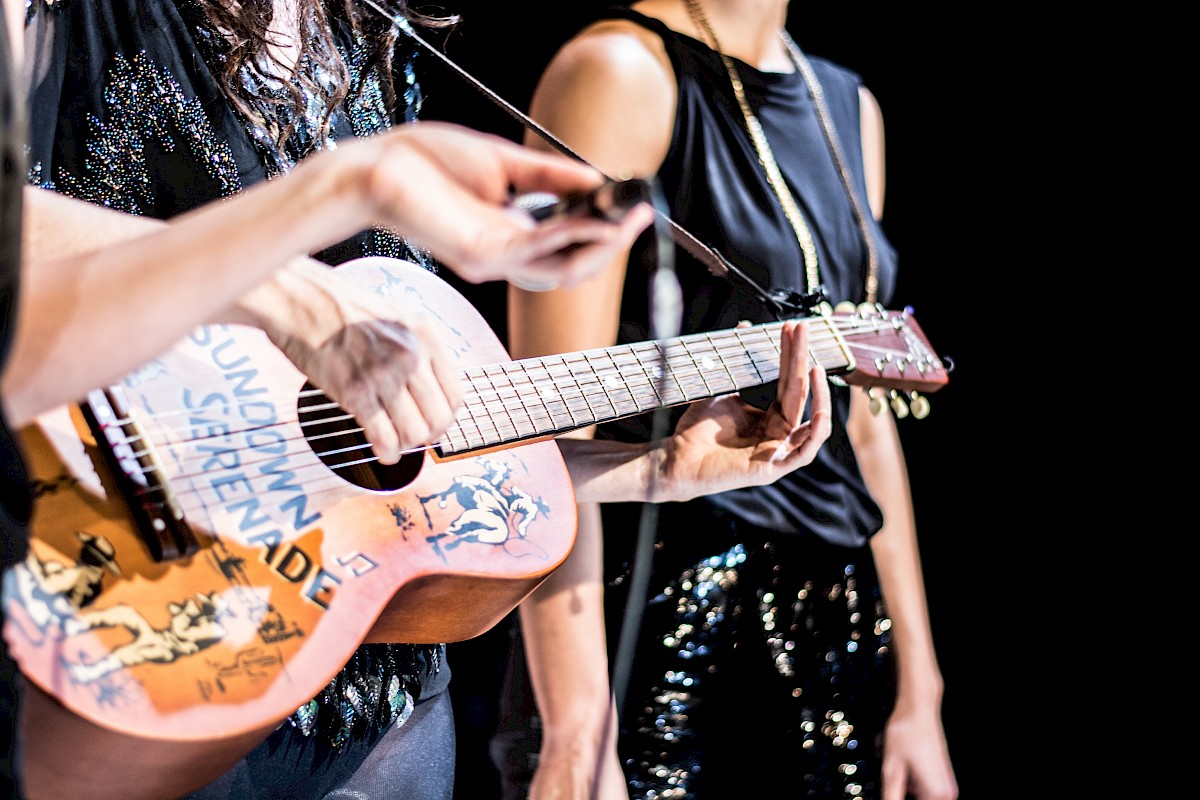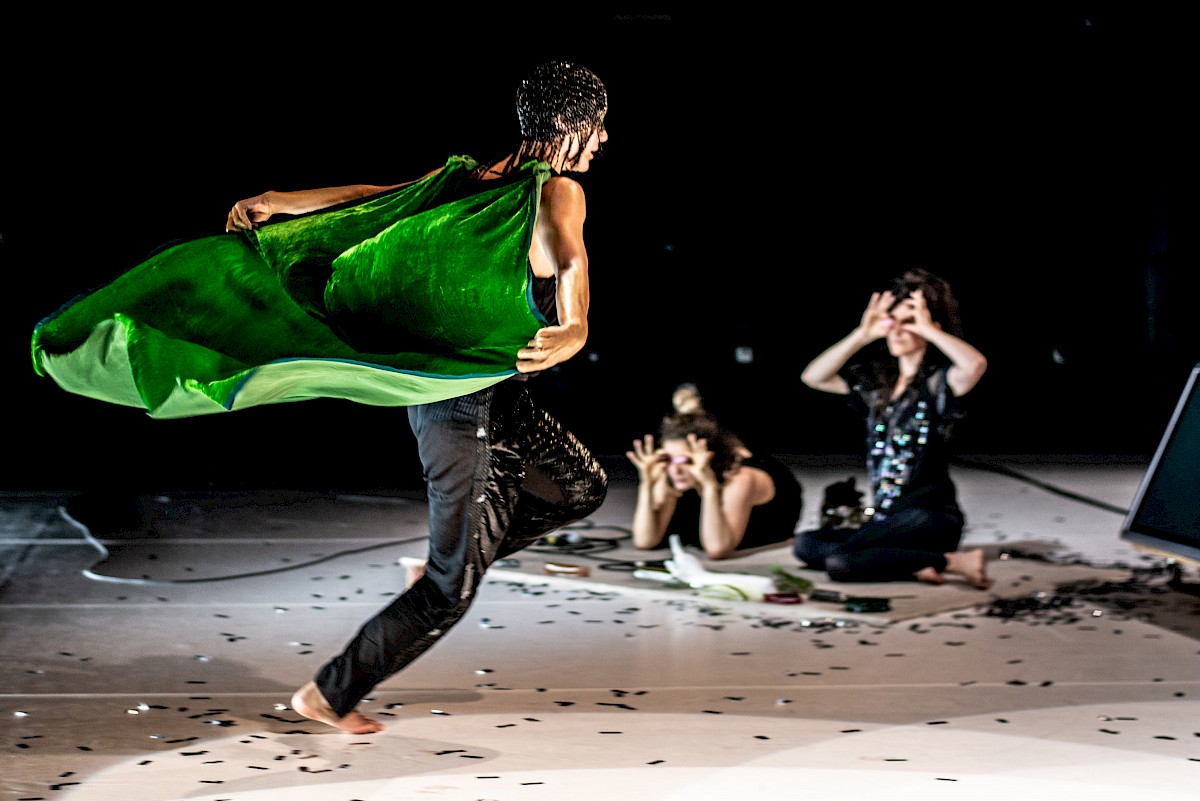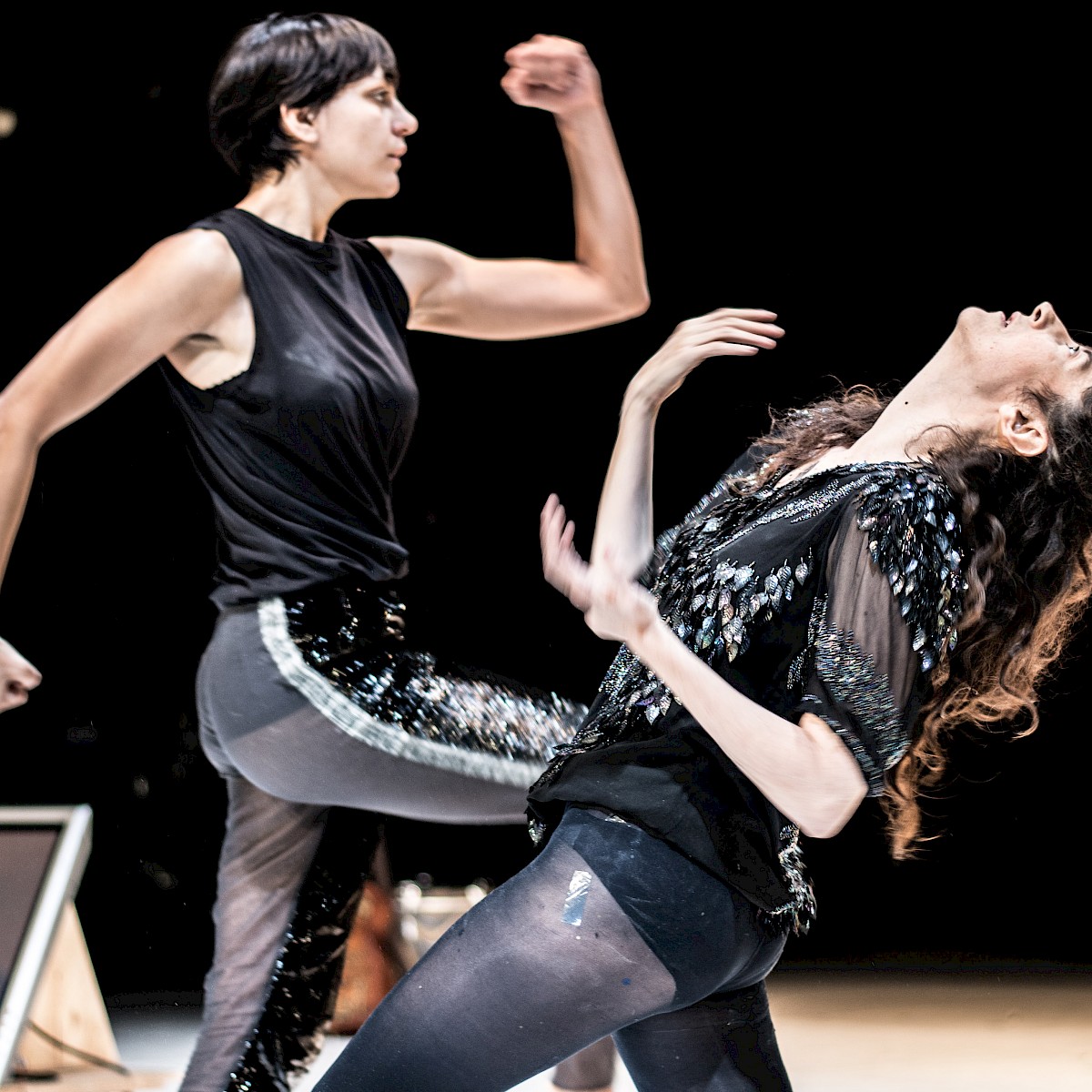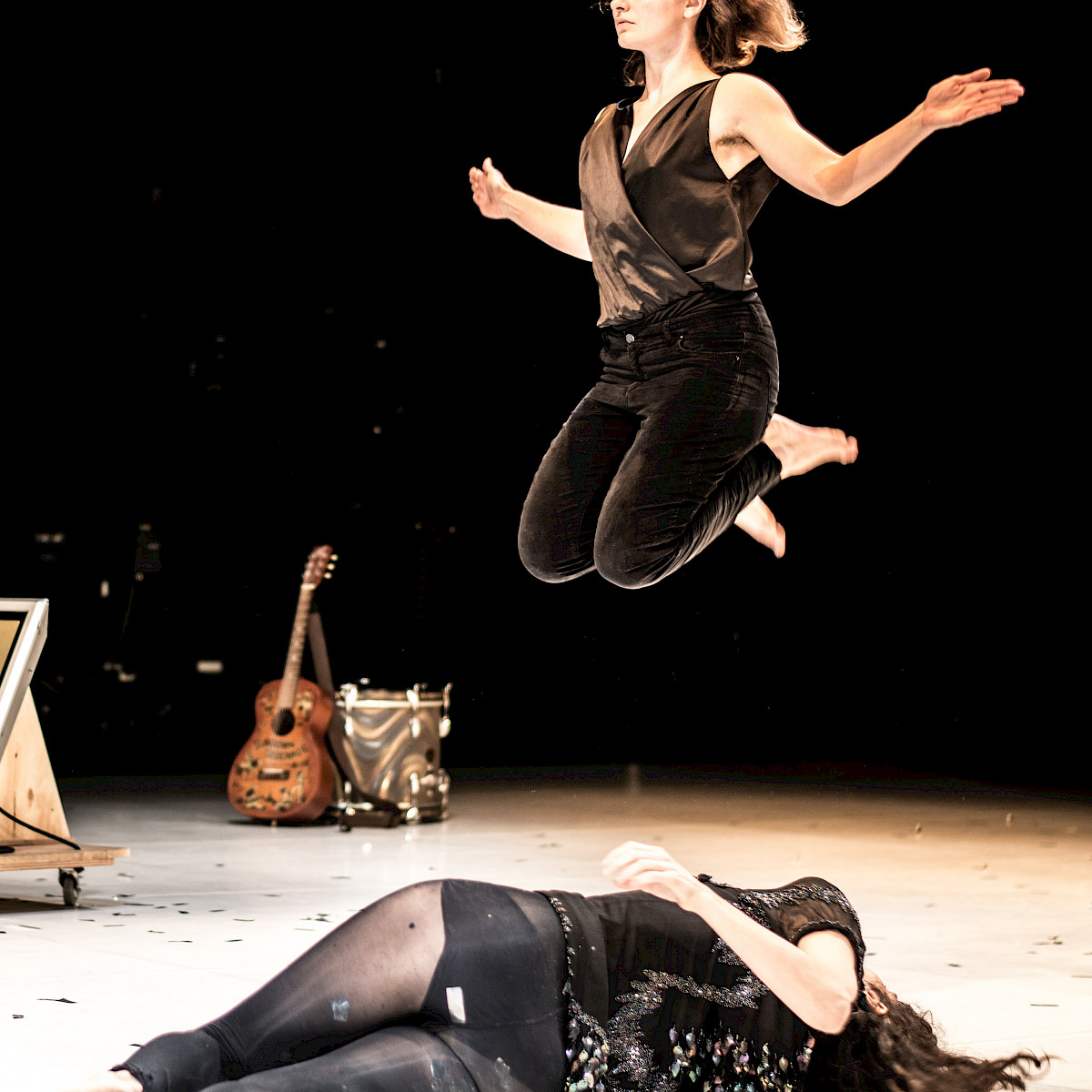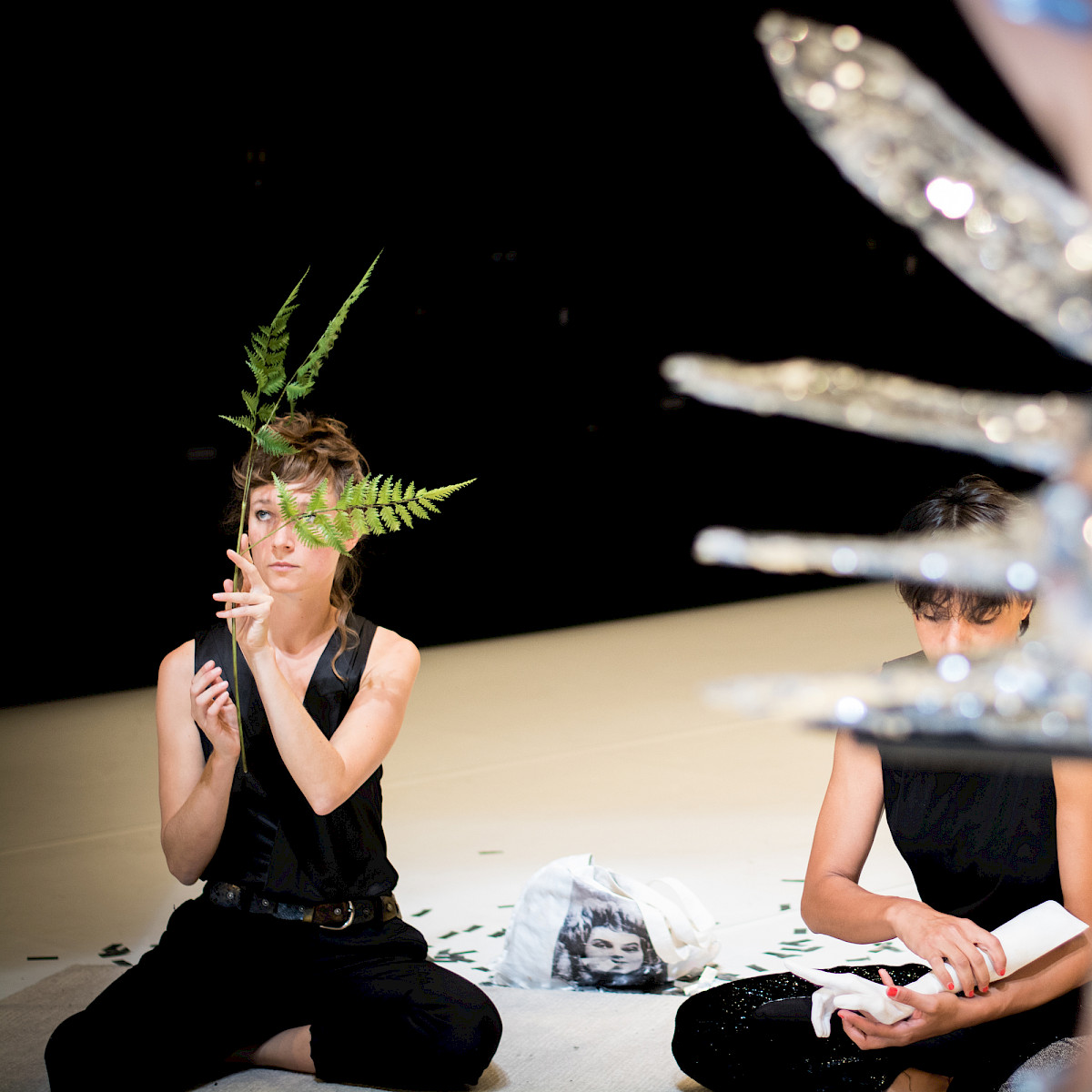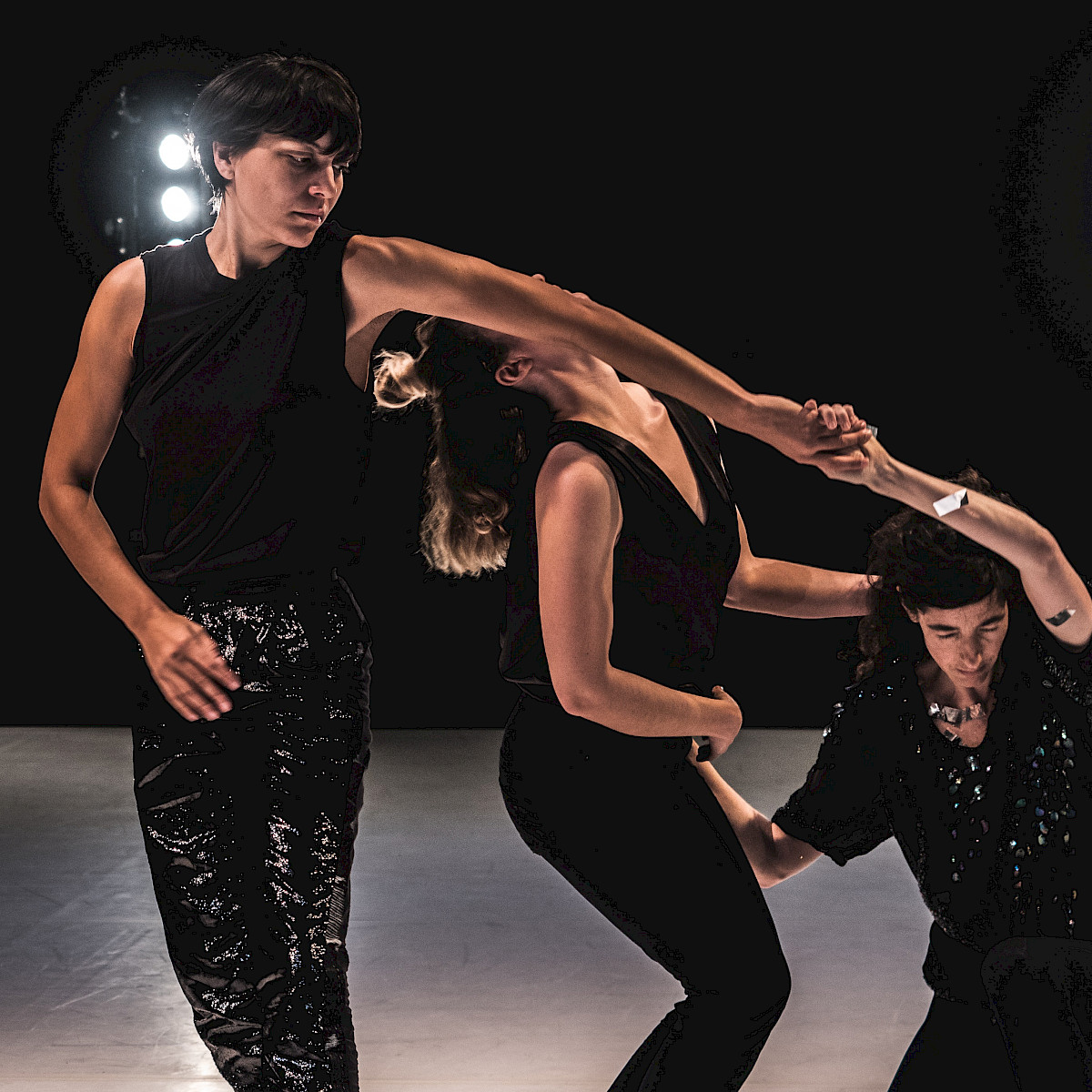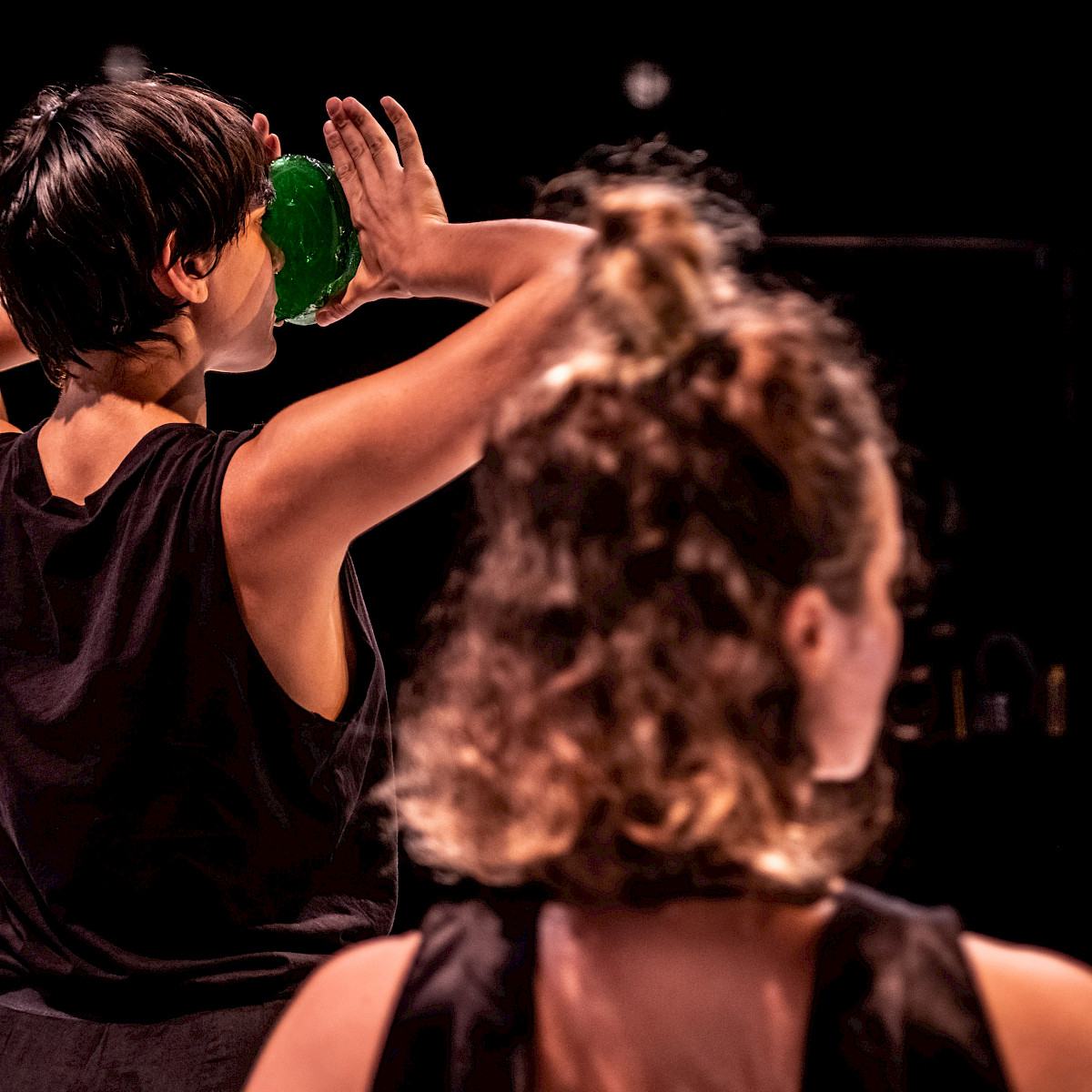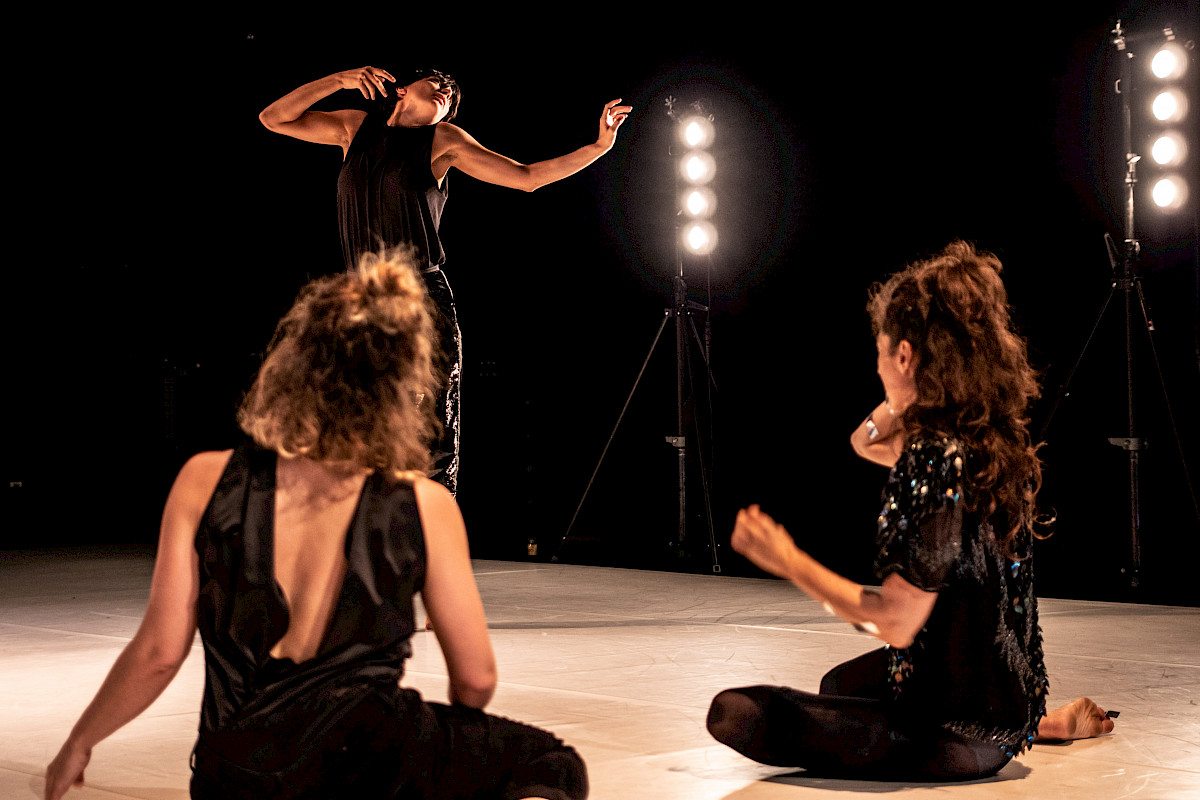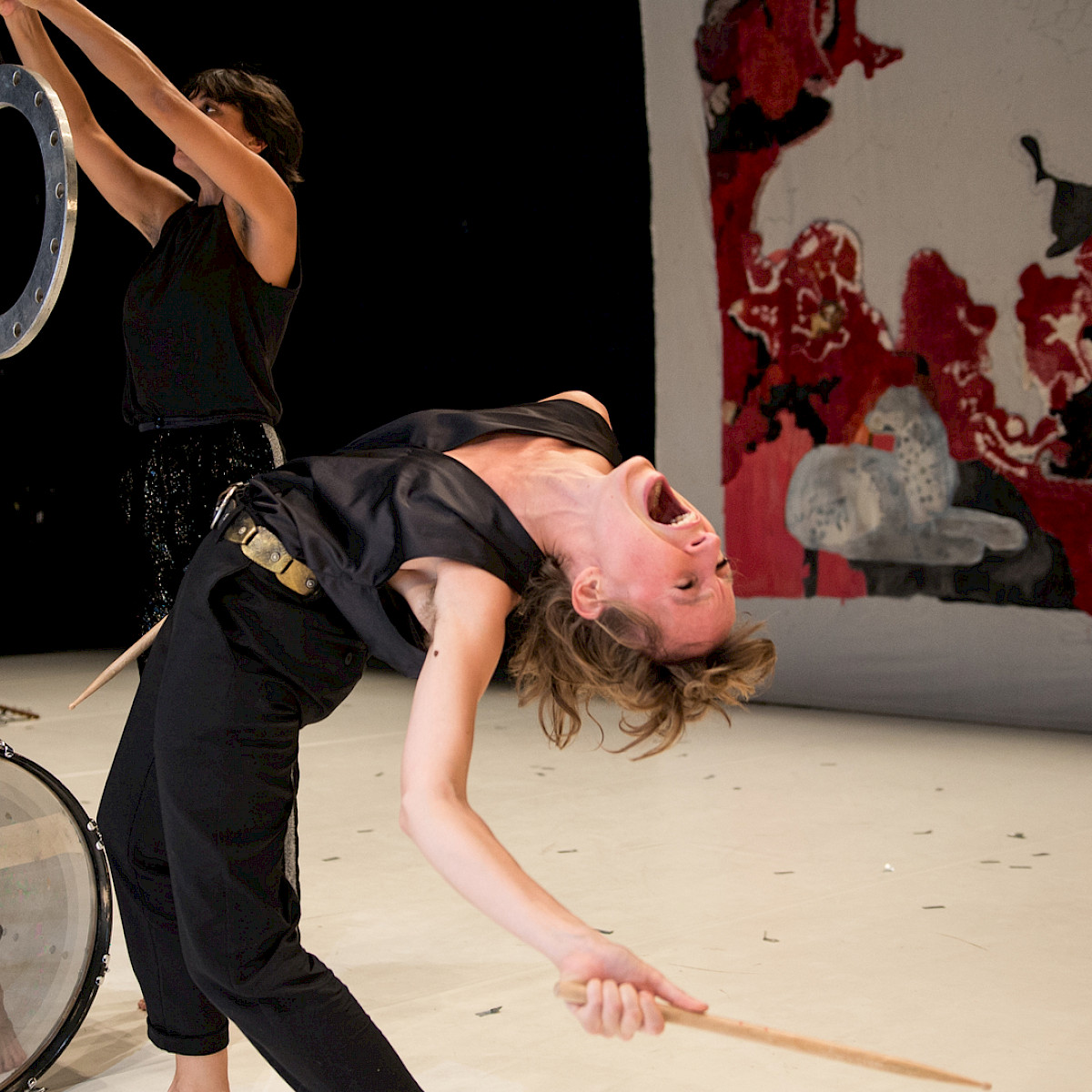IDA don't cry me love, 2019
The origin of the idea came from Ida Rubinstein, the legendary dancer with the Ballets russes and muse of Sergei Diaghilev who caused a sensation in Paris at the start of the 20th century with her charisma, beauty and inflammatory presence. In Oscar Wilde’s Salomé, in which she made her name, the dancer shed her costume and stripped naked, resulting in an instant triumph and immediate fame. Through this provocative and liberating act, Ida Rubinstein entered the history of dance, performance and feminism.
One century on, Lara Barsacq is celebrating and singing in memory of Ida Rubinstein and her glory and absence, serving as a continual source of inspiration. Her way of combining the historic and the trivial, the grandiose and the absurd, personal memories and archives, allows the choreographer to compose an ode to freedom and to those guiding figures who inspire energy and daring. A hymn to poetry and to dance as an invention of the self.
After the autobiographical Lost in Ballets russes (2018), IDA don’t cry me love is Lara Barsacq’s second personal project. It premiered on October 18th, 2019 at La Raffinerie (Brussels) in the frame of Biennale de Charleroi Danse.
IDA don’t cry me love was nominated at the Prix Maeterlinck de la Critique (BE), as the best dance performance of the theatrical season 2019-2020.
In October 2021, Lara created Fruit Tree at the Biennale de Charleroi danse. Her fourth project, La Grande Nymphe, will premiere in May 2023 at Charleroi danse.
IDA don’t cry me love - a project by Lara Barsacq (65’, 2019)
Creation and performance: Lara Barsacq, Marta Capaccioli, Elisa Yvelin/Marion Sage
Artistic advices: Gaël Santisteva
Set design and costumes: Sofie Durnez
Assistant for the props: Ben Berckmoes
Light design: Kurt Lefevre
Music: Nicolai Tcherepnin, Claude Debussy, Maurice Ravel, Snow Beard, Tim Coenen, Lara Barsacq, Gaël Santisteva
Technical direction: Emma Laroche
Administration & production: Myriam Chekhemani
Communication & distribution: Quentin Legrand - Rue Branly
Production: Gilbert & Stock
Coproduction: Charleroi danse - Centre Chorégraphique de la Fédération Wallonie-Bruxelles, Les Brigittines (BE)
Residencies: Charleroi danse - Centre Chorégraphique de la Fédération Wallonie- Bruxelles, Les Brigittines, Grand Studio, Le Théâtre de Liège (BE) and Honolulu, Nantes (FR)
With the support of Fédération Wallonie-Bruxelles — Service de la danse, Wallonie-Bruxelles International, Grand Studio and Le Réseau Grand Luxe
Lara Barsacq is artist in residence at Théâtre de Liège (2024-2028) and at Cité musicale-Metz (2024-2026)
Photos © Stanislav Dobak
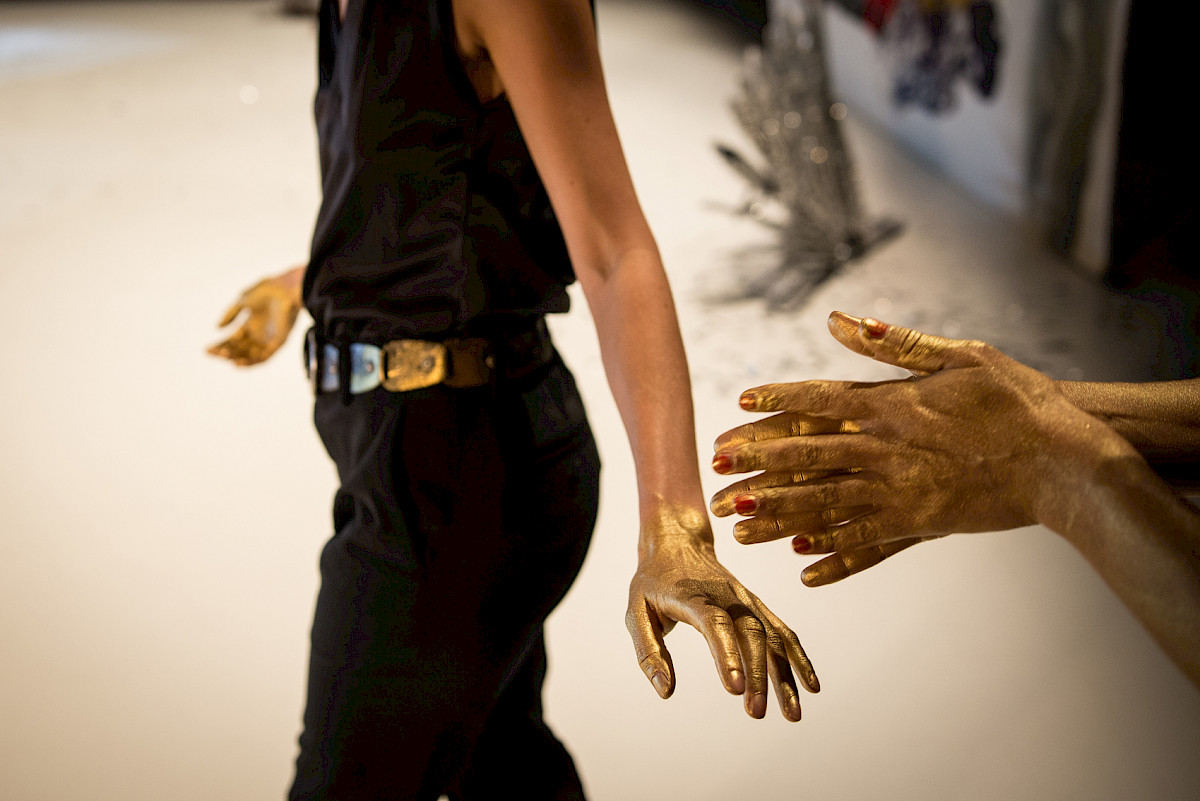
Provocative figure of the Ballets russes, performance pioneer, patron, she commissioned Ravel for his Bolero. Lara Barsacq, dancer and choreographer, dedicated a show to her, "Ida don’t cry me love" [ ] : "Ida Rubinstein was a very provocative figure for her time, and I find her assumed femininity very inspiring. She was a woman who took risks, and who, yes, was free."
Ida Rubinstein, performeuse scandaleuse de la Belle Epoque, Camille Renard, France Culture, 19.10.2020Dancer and choreographer Lara Barsacq examines her family stories and it's just wonderful. She is the great-grand-niece of Léon Bakst, painter and costume designer for the famous Ballets Russes (1909-1929). Enough to say that she is tattooed by the wonderful and revolutionary works of this period, including those showing Ida Rubinstein (1885-1960). [ ] Under the influence of this rebellious artist, Lara Barsacq stirred up archives and memories to create Ida Don't Cry Me Love. A tribute that makes time take off and merges the imagination of yesterday and today.
Rosita Boisseau, Télérama, septembre 2020Léon Bakst was my great-great-uncle. [ ] My desire to dance appeared when I was a child, thanks to a poster that was hanging at home and to some of his paintings. [ ] I immersed myself in the archives to search for anecdotes, stories, other paintings and to learn more about the Russian Ballets. It was a revelation, I found a great source of inspiration! [ ] For this period in particular, there are very few films or visual traces apart from photos or paintings, which invites us to imagine everything. Some people may try to be as faithful as possible to the work; for my part, it was the solution of emancipation that appeared to me the most inspiring.
Lara Barsacq in conversation with Marian Del Valle, NDD 77, 21.01.2020You come out of it moved, convinced to have shared an amazing and extraordinary moment.
Watch a TV report by RTBF, Kiosk, 16.01.2020Lara Barsacq draws our attention onto a marginal but exciting figure of the early twentieth century and tells her story with love, humor and aesthetic refinement. She takes us into a docu - dance performance of superior aesthetic quality. [ ] Lara Barsacq loves Ida and makes us love her. ***
Christian Jade, RTBF, 08.12.2019As the total art form claimed by its inspirer, 'IDA don't cry me love' marries dance, playfulness [ ], singing and theater. Woven with magnificence as well as humility, grandiose and trivial, the subject embraces humor and tenderness to combine a sovereign lightness with the depth of the pains that cross it, and the powerful accents of sorority.
Marie Baudet, La Libre Belgique, 02.12.2019Mixing historical elements and personal arrangements, [ ] Lara Barsacq invited two dancers to dialogue with her family and transgenerational story and created a fascinating feminist manifesto with three voices.
Wilson Le Personnic, Ma Culture, 28.11.2019Lara Barsacq's ‘IDA don’t cry me love’ is performative in its re-creation of historical events, and choreographic through the use of Ida Rubinstein's aesthetic and postural elements. It is intertwined with funny and fictional stories told by fun and touching performers - Lara Barsacq herself, Marta Capaccioli and Elisa Yvelin [ ]. A dynamic, creative and poetic result. Go for it!
Lodie Kardouss, Pzazz.theater, 22.10.2019‘Ida don’t cry me love’ is not a simple biography of the dancer. The dance interludes (the great and magnificent Marta Capaccioli on the music of Debussy) alternate with spoken passages where Lara Barsacq and Elisa Yvelin, while recounting the life of Ida, also tell theirs. [ ] It's touching, funny, sometimes disturbing.
Colombe Warin, Le Bruit de Bruxelles, 21.10.2019[Lara Barsacq] delivers a show that meets the demands of total art by Ida Rubinstein who wanted to mix music, song, dance, theater ... There is all this in 'Ida don't cry me love', together with a good extra dose of humor. Lara Barsacq and her two accomplices tell the story of Ida as well as their own, as if they were confiding in some friends. [ ] They dance too, with beautiful pleasure. [ ] They sing with a tasty mixture of innocence and light irony. [ ] Once again, during this biennale, from chaos beauty is born.
Jean-Marie Wynants, Le Soir, 21.10.2019Fascinated by this unusual character, the choreographer Lara Barsacq has devoted a touching show to [Ida Rubinstein], a patchwork of documentary through dance and performance, archives and fiction. By lifting the veil on the woman who was the definitive Salome, the three dancers reveal something of their losses and create an ode to femininity.
Gilles Bechet, BRUZZ, 16.10.2019A trio (with Marta Capaccioli and Elisa Yvelin) performed with generosity and confidence. [ ] Far from the smells of naphthalene, this IDA breathes a beautiful life into this ghost, who thus stands alongside the great heroines that the dancer incarnated, Cleopatra, Sheherazade or Joan of Arc.
Estelle Spoto, “Sur les pas d’Ida”, Focus-Le Vif, 10.10.2019The net of the official history of dance has huge holes. Many are passing through. In particular, women. Fortunately, in recent years, a new generation of artists is passionate about the past and is paying attention, as rigorously and amorously, to personalities more or less fallen in the oblivion. [ ] This personal and artistic historical thread also carries the show Lost in Ballets Russes, designed by Lara Barsacq, in connection with her great-great-uncle, the painter Léon Bakst. With his paintings in the background, she slips into the gestures of Vaslav Nijinski and Ida Rubinstein for which Maurice Ravel created Boléro in 1928. The one who, as a child, dreamed of a poster of Ida, made her her heroine : "She is a huge inspiration. She was a feminist who took risks, stripped herself in 1909! I'm shifting what she did, I dare to touch it to give it a place in history.” Lara Barsacq is currently completing a trio called IDA Don't Cry Me Love.
Rosita Boisseau, Le Monde, 20.06.2019
Past
11.01.2025, Metz (FR)
Cité musicale-Metz
23.05.2024, Leuven (BE)
STUK Arts Center
06.12.2023, Carros (FR)
Festival de danse de Cannes, Forum Jacques Prévert
